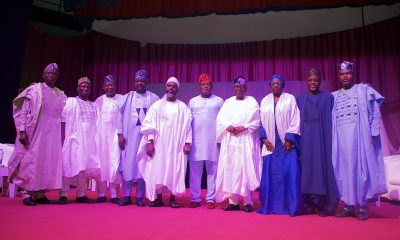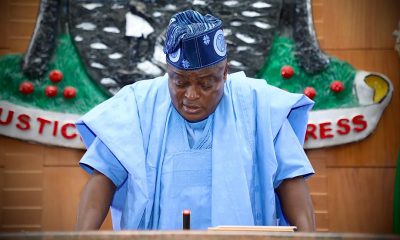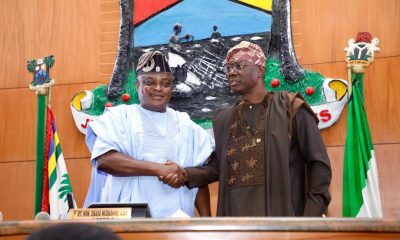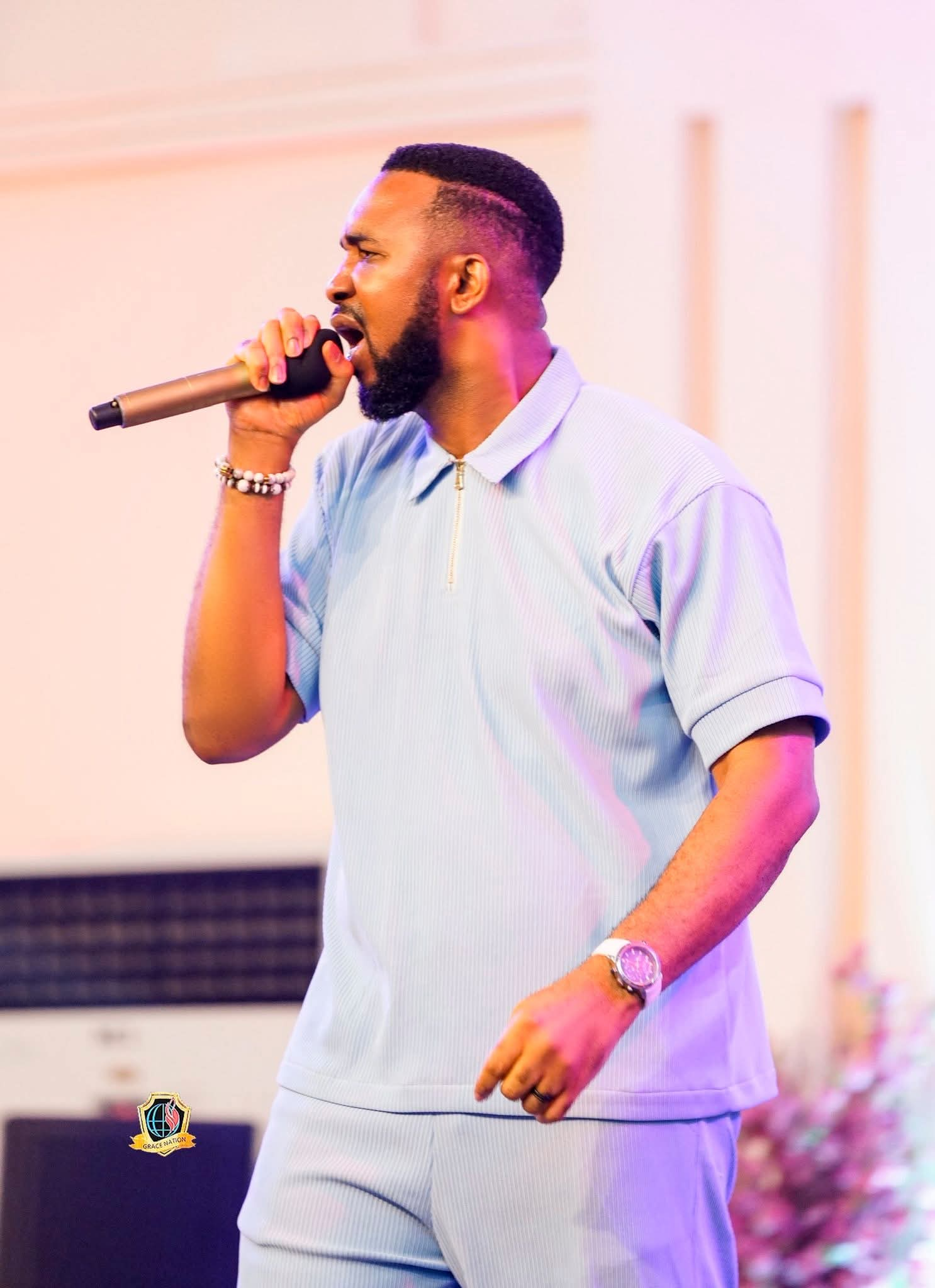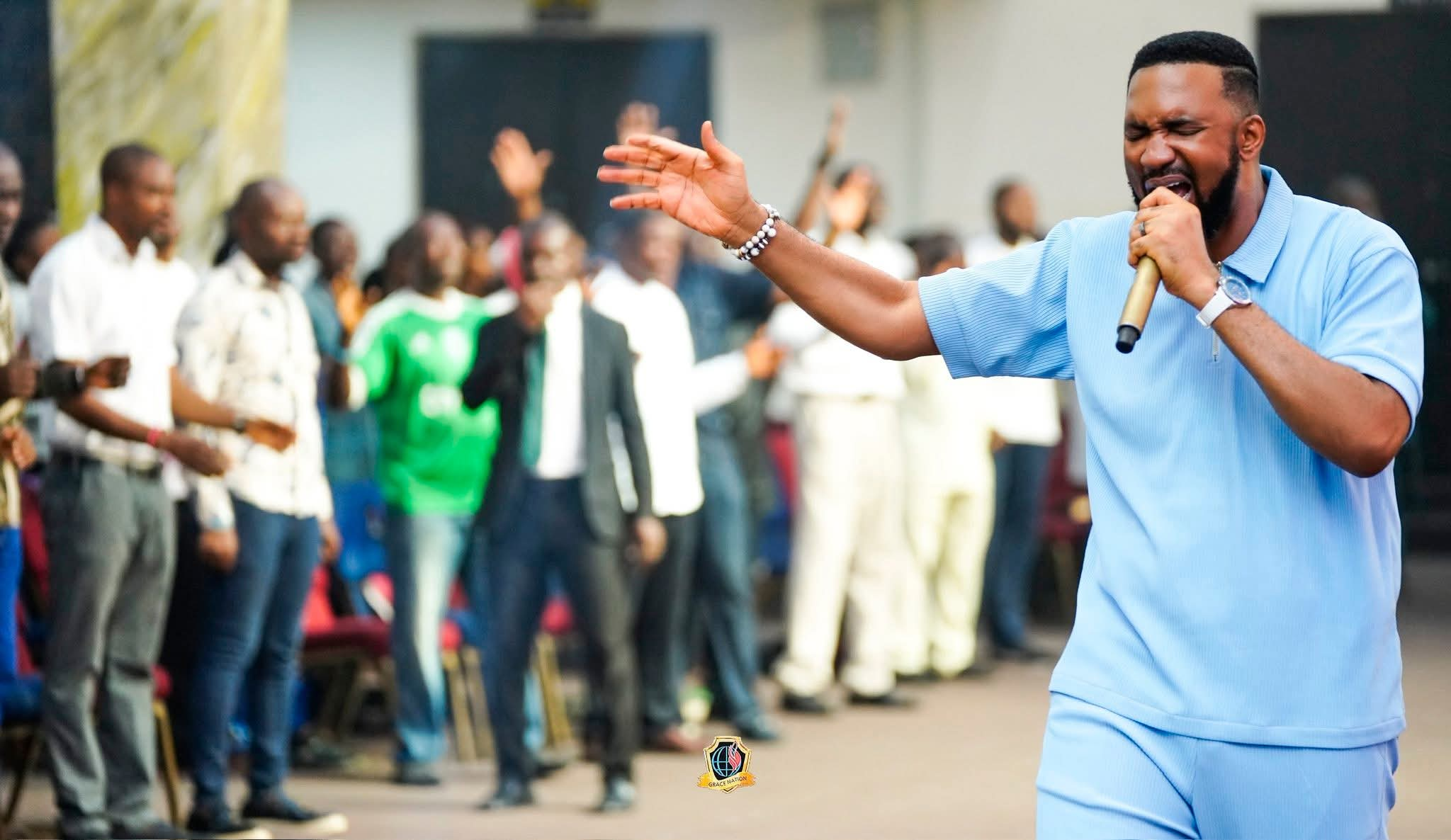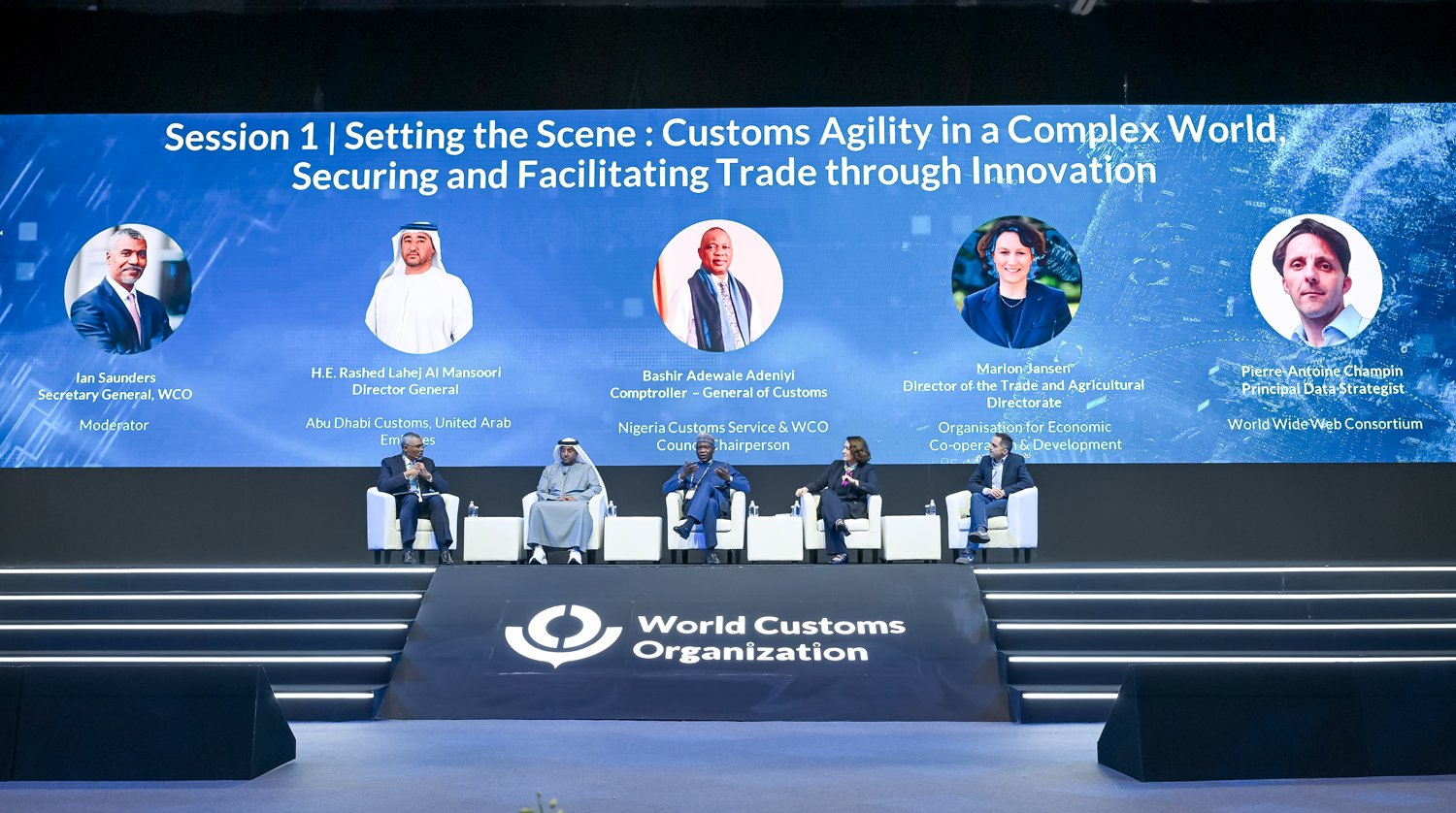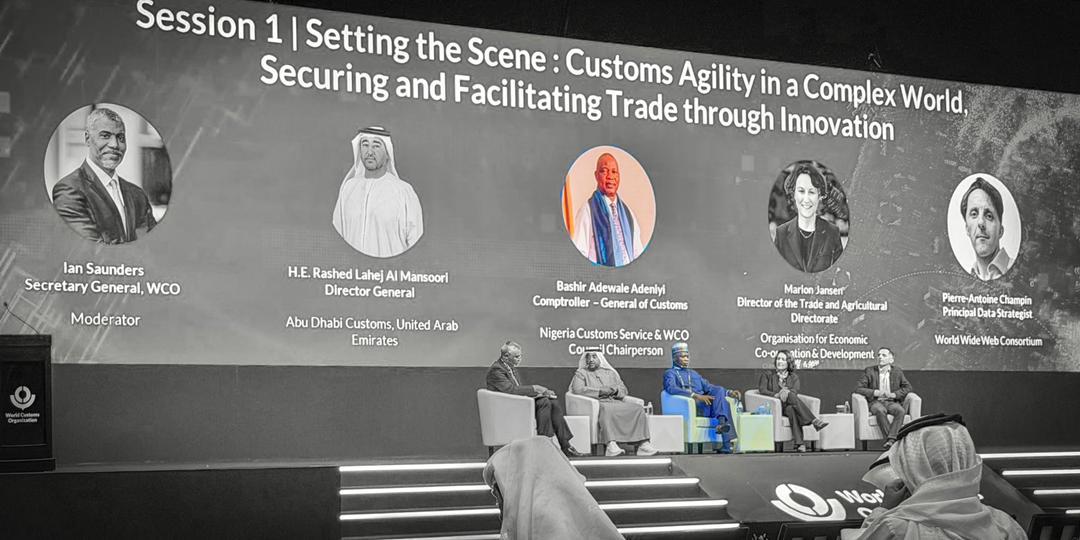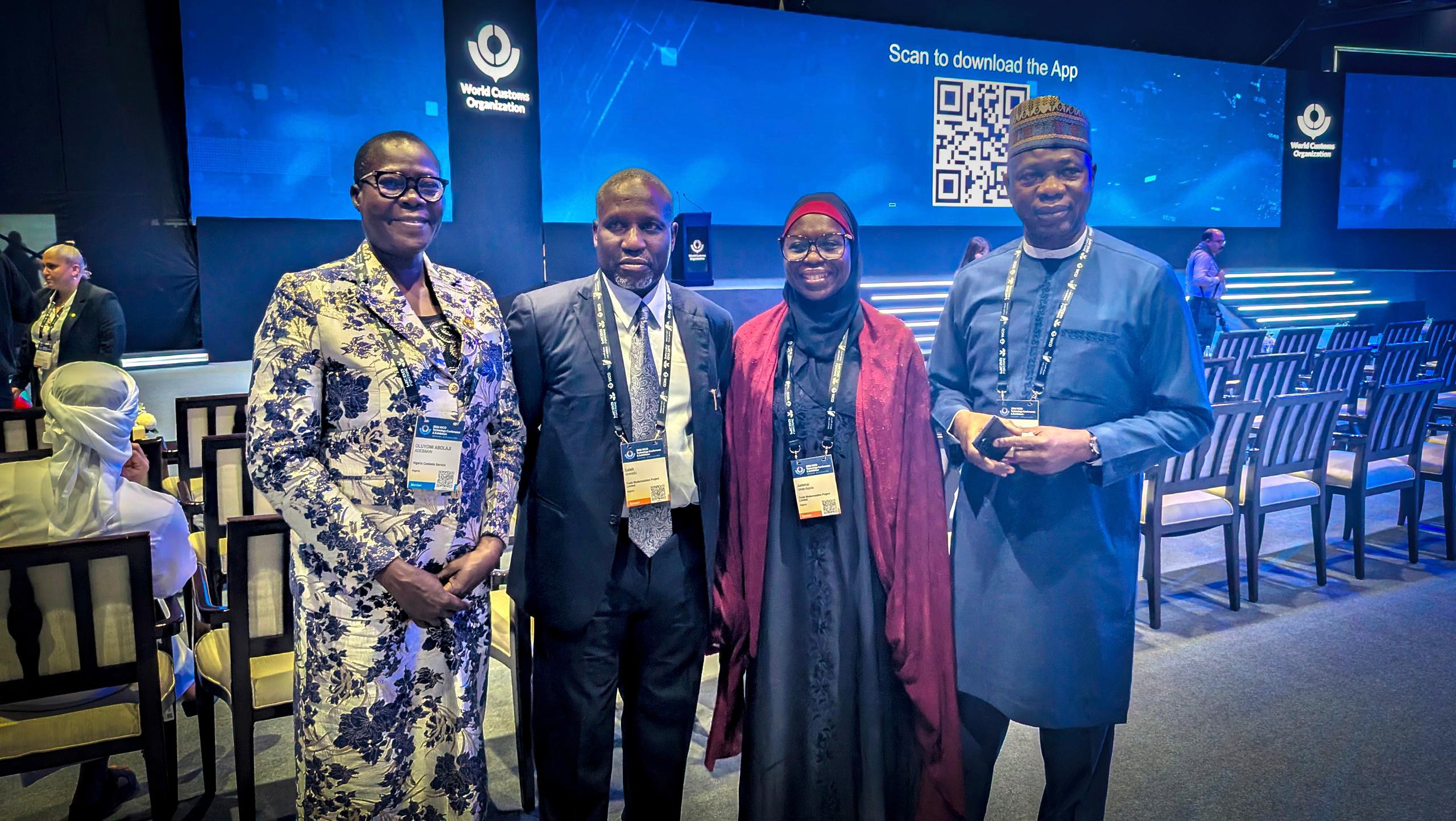Uncategorized
Lagos Speaker Debunks Allegations Before Panels
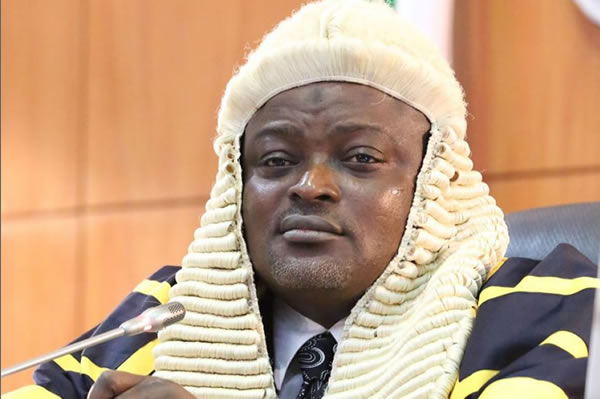
Speaker of the Lagos State House of Assembly, Rt. Hon. Mudaahiru Obasa, told the panel of enquiry raised by the Assembly on Saturday that the corruption allegations against him by Sahara Reporters were the handiwork of his enemies.
Speaker Obasa said this when he appeared before the 9-man Fact Finding Panel of the House chaired by Hon. Victor Akande (Ojo Constituency 1).
The Speaker explained that all the allegations made by Sahara Reporters in its series of reports were unfounded.
Obasa stressed that the vehicles bought for the members of the House and other expenses made by the House were done with the approval of the House and that of the Fund Management Committee (FMU) of the House headed by him.
“We bought Land Cruisers for Principal Officers of the House. The cars we buy for Principal Officers are always higher than those of other members and we followed the due process in the purchase.
“We went through the Public Procurement Agency (PPA) and others and the vehicles were distributed appropriately.
“It was agreed at the parliamentary meetings on about four occasions and the Clerk of the House is the Secretary.
“Also, it is not true that my wife collects N10 Million monthly from the House. Anyone who says she does should come with proofs and evidences.
“My approval limit as the Speaker of the House is N100 million. Anything above that would have to be approved by the Fund Management Committee. On Prado Jeep that we bought for the members, we followed the due process like we did in that of the Principal Officers,” he explained.
Obasa also debunked an allegation that N258 million was spent for the printing of invitation cards for the inauguration of the 9th Assembly adding that the whole event cost N61 million while N1.1 million was spent to print the invitation cards.
“It is not possible to spend N258 Million to print invitation cards. We are not involved in such a frivolous expenditure,” he added.
Concerning the alleged N80 million expended as estacode for the training of women in Dubai, the Speaker said that wives of 20 lawmakers attended the event and that he was there to declare the event open.
“We gave N4 million to each of the participants for air ticket, hotels, feedings and local travel. Air ticket to Dubai alone is about N2 million. Some of these allegations were raised for a crusade to get the Speaker out of office.
“The House of Assembly is above common standard of excellence and we have to train people, and this comes with a cost. Learning is not cheap and I have never collected N80 Million for estacode at a go before,” he said.
The Speaker defended the purchase of eight Hiace buses for committee works in the Assembly as he explained that it was discovered that the House was spending a lot of money to repair vehicles, which he said was why the House decided to buy the buses and that the buses were there for everybody to see with documents to defend the purchases.
He denied the allegation that he spent N53 million for a trip to the United States of America with his mistress.
“We were invited by the Consular General for a programme in the United States. Later, the programme was postponed, but I had gone ahead. I had to return home and I told others not to bother to come until the postponed dates,” he said.
The Speaker told the committee that it was not possible for him to spend N17 million for cleaning of his guest house as against the allegation made by Sahara Reporters .
“They only remove documents and fly them around to please themselves. All our payments go through certain procedures.
“The expenditure had been there before I became the Speaker. There was no way I could have spent N17 million on cleaning my guest house.
“On the issue of awarding contracts to companies belonging to me, they should come and show evidence of where I awarded contracts to myself,” he said.
Concerning the report that he tricked former governor Akinwunmi Ambode of the state to spend N350 million for hosting a meeting of Conference of Speakers, Obasa said told the committee that this was not possible.
He maintained that such was not possible since Ambode is an accountant, who rose to be the Chief Accountant of the State.
“There was no way I could have tricked Ambode to release such money anyhow. We had a meeting of the Conference of Speakers, who came with three members each and we had subcommittees who were given N2 million each.
“We paid for the tickets of each Speaker, we pay for their hotel accommodation, feeding and souvenirs.
“We also provided local transportation for them. All these allegations are deliberate actions of my enemies to achieve their aims that they could not achieve in the House to remove me as the Speaker of the House, which was why they came up with such reports.
“On N60 Million spent for social influencers, I did not sign such money. I don’t even know the companies they are talking about. The BVN they are flying about is not correct.
“Whatever I have done as a Speaker, all the approvals I gave as Speaker were given based on collective approval of the members of the House,” he said.
The Deputy Speaker of the House, Rt. Hon. Wasiu Eshinlokun-Sanni, who also appeared before the panel denied attending meeting in Dubai as against the report of SaharaReporters.
Also speaking, Chairman of the House Committee on Information and Strategy, Hon. Tunde Braimoh, said that while a media parley was held by the House, he didn’t know how much was spent on the event since different people handled different aspects of the event.
“We provided hospitality for the few the people that came. The event involved other things, there were catering and others that were given to other people to handle.
“It is most uncharitable to say we spent N47.5 Million for social media influencers. We spend money on publicity and public relations.
“We have programmes that we pay for on TVC and LTV 8. We have a magazine that we produce and we print 40,000 copies quarterly and distribute to schools and other places and we pay for the content, design and production,” he said.
The Clerk of the House, Mr. Azeez Sanni also defended the estacode for the trip to the United States of America, saying that it followed the standard procedure, and that the programme was budgeted for under conferences and seminars.
“We did not buy 11 buses, we bought eight Hiace buses for committee assignments.
“The cost exceeded N100 million and it was approved by the Management Committee of the House. It was also approved by the Public Procurement Agency and the Ministerial Tenders Board and we got a Certificate of Compliance for the purchase.
“The buses are in place at the car park. We have budgetary provision for the vehicles.
“The women trip to Dubai was also approved for in the budget. The Speaker was there, the wife of the Deputy Speaker was there and wives of 17 other lawmakers. Each participant got money for air fare, local transportation and others,” he said.
Sanni also cleared the air on N258 million for printing of invitation card, saying that the money for the whole event was N61 Million and that only N1.1 million was spent for the printing of the programme for the event.
He confirmed that 80 cars were bought in 11 months for the 8th and 9th assemblies.
“We bought 40 Corolla Cars back-up vehicles for the 8th Assembly.
“The purchase was approved by the Management Committee led by the Speaker with Hon. Olumuyiwa Jimoh, Saka Fafunmi, Hon. David Setonji and others as members.
“In the 9th Assembly, we bought Toyota Prado for members and this was approved by the Funds Management Committee headed by the Speaker.
“The issue of the vehicle was discussed at the various parliamentary meetings and it was unanimously agreed by the members.
“We bought 36 Prado Jeeps for members and it went through the PPA and we have Compliance Certificate for the purchase.
“We also bought six Land Cruisers for the Principal Officers approved by the FMC and PPA with Certificate of Compliance.
“On women empowerment programmes. We raised a submission for the programme and it was recognised by the Assembly budget. It was not paid into the account of the wife of the Speaker. The facility manager has no relationship with the Speaker of the House,” he said.
The Clerk of the House, however said that some documents might have been released to SaharaReporters “through some disgruntled staffers of the House.
“We have been taking steps on that and we have transferred some staff.
“The files go through many tables and there is no doubt that some devilish staffers take pictures of some of these documents and send to these people.
“The staff have taken oaths and this attracts dismissal. Unofficial disclosure of information attracts dismissal in the civil service,” he stated.
Two officials of Zenith Bank; Mr. John Olorundare, Chief Compliance Officer, Mr. John Olorundare, Zonal Head of Alausa, Mr. Sanni Idowu Awe also appeared before the panel.
The bank officials stated that an individual could only have one BVN.
They confirmed that different account names could not be used for one BVN and that Speaker Obasa had only six accounts with Zenith Bank.
According to them, only two of the accounts are operational; one savings and current, while the rest are dormant.
Present at the meeting were other members of the committee including Hon. Yinka Ogundimu (Agege 2), Hon. Gbolahan Yishawu (Eti Osa 2), Hon. Lukmon Olumoh (Ajeromi Ifelodun 1) and Hon. Ajani Owolabi (Lagos Mainland 1).
Others are Hon. Mojisola Alli-Macaulay (Amuwo Odofin 1), Hon. Rotimi Olowo (Shomolu 1) and Hon. Akeem Shokunle (Oshodi/Isolo 1).
news
Ramadan 2026: Let’s Be United, Shina Akanni Urges Muslims.
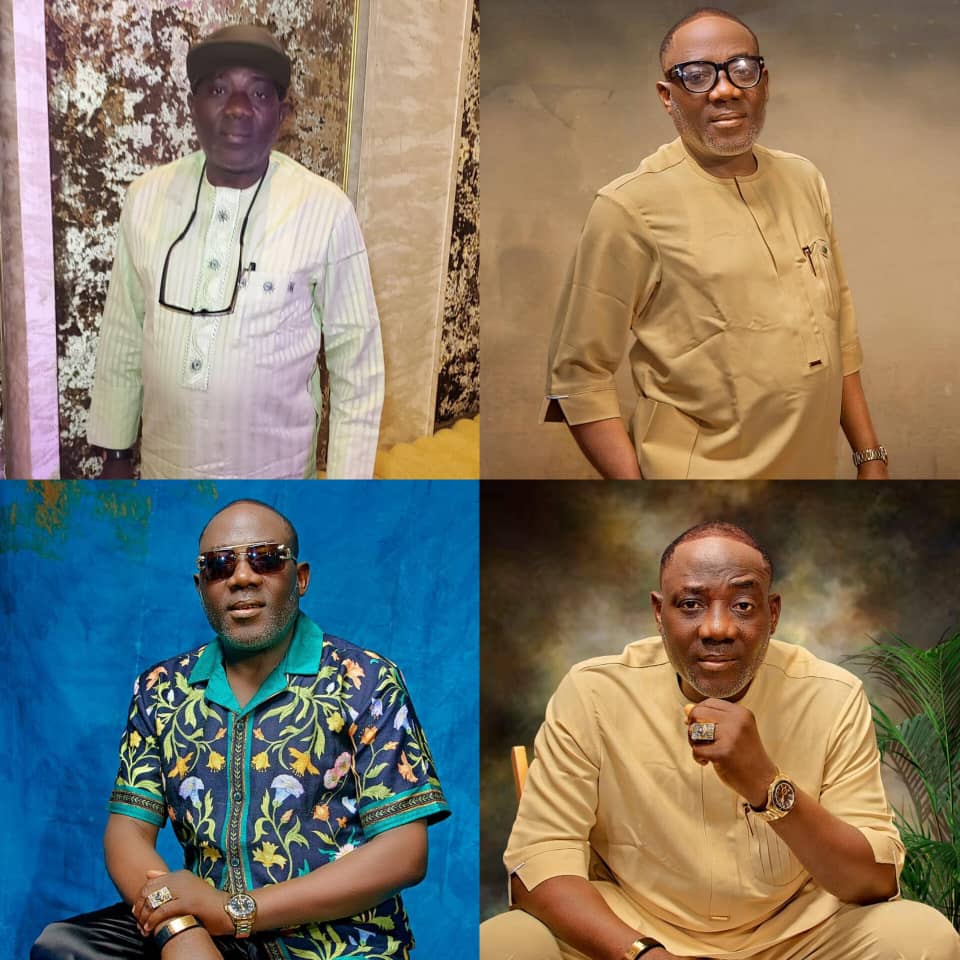
Ramadan 2026: Let’s Be United, Shina Akanni Urges Muslims.
As Muslims all over the world begins the 30 days compulsory fasting and prayer today,top Fuji Musician Aare Sir Shina Akanni Aroworeyin Scorpido has congratulates them for witnessing another month of Ramadan.
Akanni advised them to follow the teachings of the the Holy Prophet Muhammad (SAW) which is peaceful co existence among themselves and their neighbor ‘because Islam is Religion of peace”.
He said the month of Ramadan is an holy month therefore Muslims should try as much as they can to maintain peaceful coexistence among themselves and others and that they should see themselves as ambassador of peace.
While praying for Nigeria,Aare Sir Shina Akanni Aroworeyin Scorpido said he believes that there will be an economic turnaround soon because what’s is happening now are signs of thought times that never last “if we can pecevere things will get better”.
The Scorpido crooner who recently released a hip hop single titled “Magbelo” said he is currently working on a complete album which will be released before the end of the year.
Aare Sir Shina Akanni Aroworeyin Scorpido whose last album ‘ABCD” is still in hot demand said that his next album will be a pot pouri of all kinds of music because his brand of Fuji music is a blend Fuji , Hip-hop,Apala ,Highlife and others.
Uncategorized
The Enemies Within: Jonahs Are Not Manageable — Dr. Chris Okafor
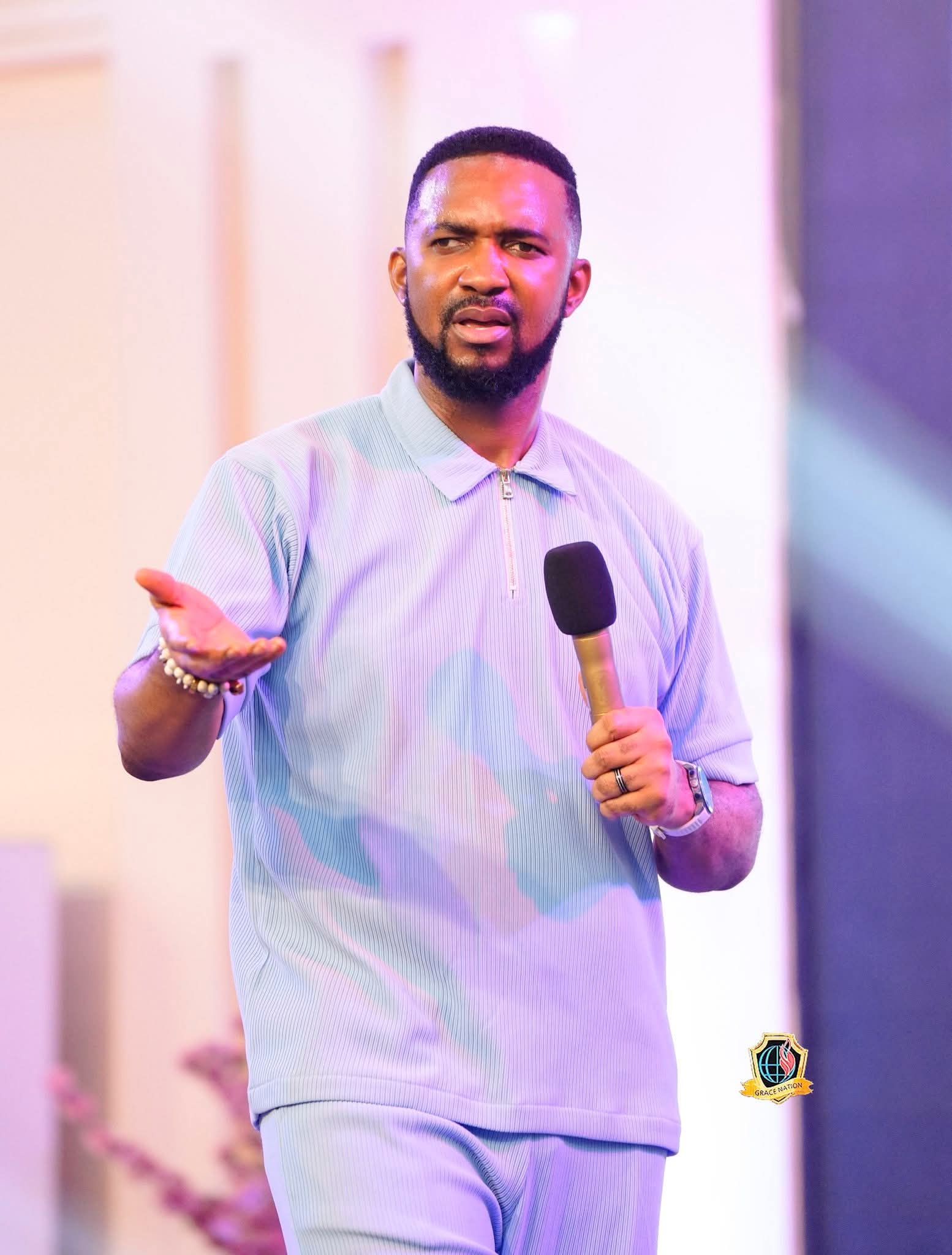
The Enemies Within:
Jonahs Are Not Manageable — Dr. Chris Okafor
…….“To remove Jonah, you must bring Jesus into the matter.”
When a “Jonah” enters a person’s life, confusion, gossip, blackmail, betrayal, and the pull-him-down syndrome often follow. But the moment Jesus Christ is invited into the situation, the storm subsides and stability is restored.
This was the central message delivered by the Generational Prophet of God and Senior Pastor of Grace Nation Global, Dr. Chris Okafor, during the midweek non-denominational Prophetic Healing, Deliverance and Solutions Service (PHDS) held at the international headquarters of Grace Nation Worldwide in Ojodu Berger, Lagos, Nigeria.
The Clergyman also declared that Nothing Happens Without Spiritual Influence
In his sermon titled “The Enemies Within,” Dr. Okafor declared that nothing happens without spiritual involvement. According to him, every visible battle has an invisible root.
Referencing the biblical story of Jonah, the Man of God explained that Jonah’s presence on the ship gave access to a contrary spirit that tormented everyone onboard.
Despite the losses suffered by innocent traders and sailors, the storm persisted because of one man’s disobedience.
However, he noted that when Jesus speaks into a situation, every storm must obey. Just as Christ rebuked the storm and it ceased, so too will the storms in believers’ lives subside when He is invited into their “boat.”
*The Impact of a Jonah*
Dr. Okafor further emphasized that “Jonahs” are difficult to manage. When such individuals are present in one’s circle, progress becomes delayed.
What should ordinarily manifest quickly may be prolonged or frustrated because someone close—someone who understands you deeply—may be operating as a spiritual adversary.
He explained that negative narratives, unnecessary battles, and unexplained setbacks often begin when a “Jonah” gains access to a person’s inner circle.
*The Solution*
“To remove Jonah from the boat of your life,” the Generational Prophet declared, “you must invite Jesus Christ into the matter.”
According to him, when Jesus takes control of the boat, the plans of the enemy are overturned.
What was designed for downfall becomes a testimony. No storm or battle can succeed where Christ reigns, and the enemy is ultimately put to shame.
The midweek service witnessed a strong prophetic atmosphere, with the power of God evident through deliverance, restoration, and divine revelations.
The Generational Prophet ministered deeply in the prophetic, calling out names, villages, and addressing alleged spiritual strongholds, as many lives were reportedly restored—all to the glory of God.
By Sunday Adeyemi
Uncategorized
FROM BORDER TO MARKETS: HOW NIGERIA’S REFORMS ARE REWRITING AND MODERNISING TRADE FACILITATION By O’tega Ogra
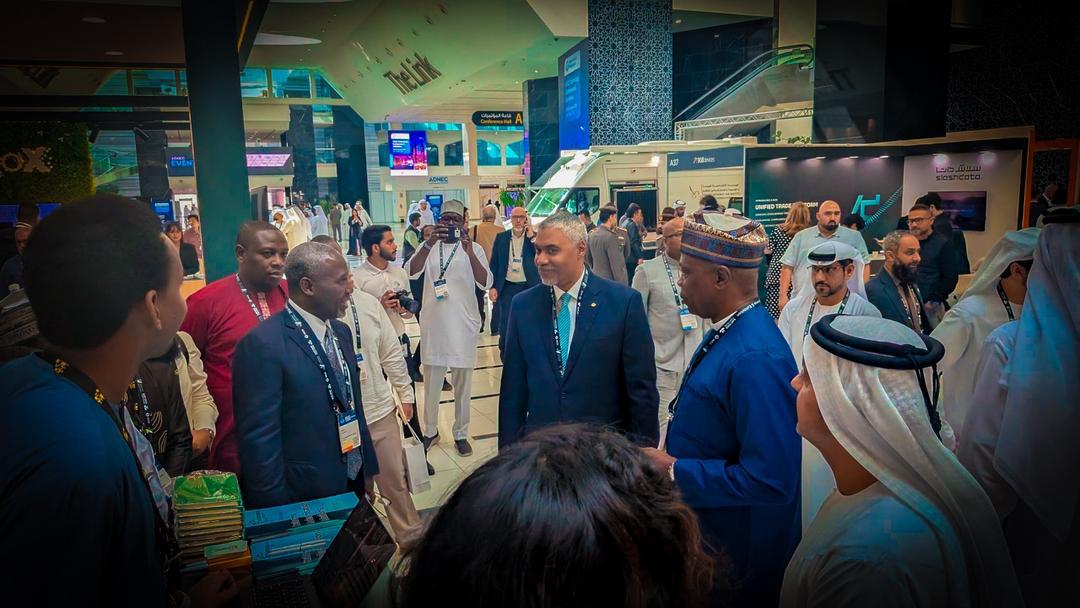
FROM BORDER TO MARKETS: HOW NIGERIA’S REFORMS ARE REWRITING AND MODERNISING TRADE FACILITATION
By O’tega Ogra
On the surface, the 2026 World Customs Organization (WCO) Technology Conference in Abu Dhabi, held in the last week of January, followed a familiar script: flags, formal sessions, carefully worded speeches. But beneath the choreography, something more consequential was unfolding. As customs chiefs and trade officials compared notes on the future of borders, Nigeria arrived not with theory, but with a working proposition.
The Nigeria Customs Service (NCS) Modernisation Project, being implemented through Trade Modernisation Project (TMP) Limited, unveiled to a global audience of customs administrators and policy leaders a window into how Africa’s largest economy is confronting one of the most complex challenges in public administration: reforming the machinery of trade while it is still running.
For decades, customs reform was treated largely as a technical exercise—frequent patches here, shoddy fixes there; new software in one corner, revised procedures in another. Nigeria’s presence in Abu Dhabi signalled something different. TMP Limited, working in partnership with the NCS, advanced the argument that trade is a cornerstone of economic development and must be supported by organic, sustainable partner ecosystems. Such ecosystems deliver speed and trust, revenue and credibility, and secure borders without stifling commerce.
That argument resonated in a room increasingly aware that global trade is no longer defined solely by tariffs and treaties, but by data, interoperability, and the quiet efficiency of systems that simply work.
The annual WCO Technology Conference has, in recent years, become a barometer for the direction of global trade governance. This year’s discussions reflected a shared anxiety: supply chains are more fragile, compliance risks are rising, and governments face mounting pressure to collect revenue without discouraging investment. Customs administrations now sit at the intersection of all three.
Nigeria’s response has been to attempt a full reset.
At the heart of this effort is the NCS Modernisation Project, implemented through a Public-Private Partnership (PPP) arrangement with TMP Limited as the concessionaire. The project seeks to replace fragmented technology deployments and manual processes within the Nigeria Customs Service with a single, integrated framework. This is anchored on B’Odogwu, a Unified Customs Management System (UCMS) that brings together cargo clearance, risk management, payments, and inter-agency collaboration. The ambition is sweeping—and so are the stakes.
Alhaji Saleh Ahmadu, OON, Chairman of TMP, framed the initiative as nothing less than an institutional reconstruction, designed to position the NCS at the forefront of global customs administration technology, aligned with international standards and assurance frameworks.
“Digital trade modernisation is not just about upgrading systems,” he told participants in Abu Dhabi. “It is about upgrading trust, predictability, and confidence in how trade flows through our borders.”
That choice of words matters. Nigeria’s economy has long struggled with the perception gap between its size and the ease of doing business. Investors cite delays. Traders complain of opacity. Government points to revenue leakages. In this context, customs reform becomes as much a credibility project as a technical one.
Saleh’s message was timely and direct: modern trade demands modern customs. Data-driven processes, automation, and risk-based controls are no longer luxuries; they are prerequisites for competitiveness in a world where capital moves faster than policy.
The institutional face of this digital transformation is the Comptroller-General of Customs, Bashir Adewale Adeniyi, who led Nigeria’s delegation to Abu Dhabi. His message reflected a subtle but important shift in how customs leadership now understands its role.
“Customs administrations today must evolve from gatekeepers to facilitators of legitimate trade,” Adeniyi said. “Nigeria’s customs modernisation project reflects our determination to place the Nigeria Customs Service at the centre of national economic transformation.”
It is a familiar refrain globally, but one that carries particular weight in Nigeria, where customs revenue remains a critical pillar of public finance. Automation, Adeniyi argued, is not about weakening control; it is about strengthening it through intelligence rather than discretion.
Risk management systems reduce unnecessary physical inspections. Integrated platforms limit human contact. Data analytics improve compliance targeting. When executed well, the result is faster clearance for compliant traders and tighter scrutiny for high-risk consignments.
In Abu Dhabi, peers from Asia, Europe, and Latin America listened closely to Nigeria’s presentation. Reforming customs in a small, open economy is one thing. Doing so in a market of over 200 million people, home to some of Africa’s busiest ports and its largest economy, is quite another.
Nigeria’s engagement emphasised that customs modernisation is embedded within a broader economic reform agenda under President Bola Ahmed Tinubu, GCFR. Simplifying trade procedures, strengthening revenue assurance, and aligning with international standards form part of a wider effort to reposition the economy for investment-led growth.
What makes the project particularly noteworthy is its insistence on end-to-end coherence. Rather than digitising isolated functions, the reform aims to connect agencies, harmonise data, and reduce duplication across government—an all-of-government approach that acknowledges an uncomfortable truth: trade friction is often created not at the border, but between institutions.
The WCO 2026 Technology Conference offered Nigeria more than a platform; it provided a stress test. Questions from peers were pointed. How will change be sustained across political cycles? How will capacity be built? How will entrenched institutional behaviours be unlearned?
The responses were pragmatic. Reform is being phased. Training programmes are ongoing. International benchmarks are being adopted not as slogans, but as operating standards. There were no claims of perfection—only a clear statement of intent.
“Our engagement here underscores Nigeria’s commitment to international cooperation,” Adeniyi noted. “We are learning, sharing, and contributing to global conversations on the future of customs administration.”
That contribution matters. As Africa moves to deepen regional trade under continental frameworks, customs efficiency will determine whether integration succeeds in practice or remains aspirational on paper. Nigeria’s experience, if successful, could offer a valuable template for other developing economies navigating similar constraints.
In Abu Dhabi, the mood was cautious but curious. Reform fatigue is real in many countries. Yet there was a growing sense that Nigeria’s effort—precisely because of its scale and difficulty—deserves attention.
Borders are rarely glamorous. But they are decisive. In choosing to modernise its borders in public, under global scrutiny, Nigeria is signalling something beyond technical competence. It is signalling seriousness.
And in global trade, seriousness still counts.
O’tega Ogra is Senior Special Assistant to President Bola Ahmed Tinubu, GCFR, responsible for the Office of Digital Engagement, Communications and Strategy in the Presidency.
-

 celebrity radar - gossips6 months ago
celebrity radar - gossips6 months agoWhy Babangida’s Hilltop Home Became Nigeria’s Political “Mecca”
-

 society5 months ago
society5 months agoReligion: Africa’s Oldest Weapon of Enslavement and the Forgotten Truth
-

 society6 months ago
society6 months agoPower is a Loan, Not a Possession: The Sacred Duty of Planting People
-

 news6 months ago
news6 months agoTHE APPOINTMENT OF WASIU AYINDE BY THE FEDERAL GOVERNMENT AS AN AMBASSADOR SOUNDS EMBARRASSING


